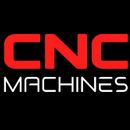Understanding Manufacturers: The Backbone of the Economy

Manufacturer: The Backbone of the Economy
Manufacturer are the vital engines that drive economic growth and innovation across various industries. They transform raw materials into finished goods, creating products that meet consumer needs and contribute to the global supply chain. This in-depth article will explore what manufacturers do, the different types of manufacturers, their importance in the economy, and emerging trends shaping the manufacturing landscape.
What is a Manufacturer?
A manufacturer is a business or entity that produces goods by transforming raw materials into finished products through various processes, such as machining, assembly, and fabrication. Manufacturers can range from small artisanal shops to large multinational corporations and operate in diverse sectors, including automotive, electronics, food and beverage, textiles, and pharmaceuticals.
Key Functions of Manufacturers:
- Production Planning: Manufacturers develop strategies to efficiently produce goods while minimizing costs and maximizing output.
- Quality Control: Ensuring that products meet established standards and specifications is crucial for maintaining customer satisfaction and brand reputation.
- Supply Chain Management: Manufacturers coordinate with suppliers and distributors to manage the flow of materials and finished goods throughout the supply chain.
Types of Manufacturers
Manufacturers can be categorized based on their production processes and the types of goods they produce. Here’s a breakdown of the primary types of manufacturers along with estimated industry volumes:
| Type of Manufacturer | Description | Estimated Industry Volume |
|---|---|---|
| Discrete Manufacturers | Produce distinct items that can be counted and seen. | Approximately $1.3 trillion* |
| Process Manufacturers | Produce goods in bulk using continuous production. | Approximately $2.1 trillion* |
| Job Shop Manufacturers | Produce small batches of custom products. | Approximately $90 billion* |
| Contract Manufacturers | Produce goods on behalf of other companies. | Approximately $150 billion* |
| Original Equipment Manufacturers (OEMs) | Produce components for other products. | Approximately $400 billion* |
*Note: Industry volumes are estimated figures and may vary based on market fluctuations and economic conditions.
1. Discrete Manufacturers
Definition: These manufacturers produce distinct items that can be counted, touched, and seen.
Examples: Automotive manufacturers (e.g., Ford, Toyota), electronics manufacturers (e.g., Apple, Samsung), and furniture manufacturers (e.g., IKEA).
2. Process Manufacturers
Definition: These manufacturers produce goods in bulk using continuous production processes, often involving chemical or physical transformations.
Examples: Oil refineries, food processors (e.g., Coca-Cola), and chemical manufacturers.
3. Job Shop Manufacturers
Definition: Job shop manufacturers produce small batches of custom products, often tailored to specific customer requirements.
Examples: Machine shops, custom fabricators, and specialty printing companies.
4. Contract Manufacturers
Definition: These manufacturers produce goods on behalf of other companies, often handling production processes for well-known brands.
Examples: Foxconn (manufacturing for Apple), Jabil, and Flex.
5. Original Equipment Manufacturers (OEMs)
Definition: OEMs produce components that are used in the assembly of other products.
Examples: Companies producing parts for automotive or electronic devices, such as Bosch or Delphi.
Importance of Manufacturers in the Economy
Manufacturers play a crucial role in the economy for several reasons:
1. Job Creation
Manufacturing is a significant source of employment, providing millions of jobs across various skill levels and sectors. From factory workers to engineers, the manufacturing sector supports a diverse workforce.
2. Economic Growth
Manufacturing contributes significantly to GDP, driving economic growth and stability. It creates value through production, export, and innovation.
3. Innovation and R&D
Manufacturers invest heavily in research and development (R&D) to innovate and improve products and processes. This investment fosters technological advancements that benefit the entire economy.
4. Supply Chain Stability
Manufacturers are integral to supply chains, ensuring that raw materials and components are transformed into finished goods. Their efficiency and reliability contribute to overall supply chain stability.
5. Global Competitiveness
A strong manufacturing sector enhances a country’s global competitiveness. Countries with robust manufacturing capabilities can export goods, create trade relationships, and influence global markets.
Emerging Trends in Manufacturing
As technology continues to evolve, several trends are shaping the future of manufacturing:
1. Industry 4.0
The fourth industrial revolution, known as Industry 4.0, is characterized by the integration of smart technologies, IoT (Internet of Things), and automation in manufacturing processes. This trend leads to increased efficiency, data-driven decision-making, and improved production quality.
2. Sustainability Initiatives
Manufacturers are increasingly adopting sustainable practices to reduce their environmental impact. This includes using eco-friendly materials, optimizing energy consumption, and minimizing waste.
3. Additive Manufacturing
Also known as 3D printing, additive manufacturing allows for the creation of complex geometries and custom parts with minimal material waste. This technology is revolutionizing product design and production methods.
4. Digital Twin Technology
Digital twins are virtual replicas of physical systems that allow manufacturers to simulate processes, monitor performance, and optimize operations in real time.
5. Reshoring and Local Manufacturing
In response to global supply chain disruptions, many manufacturers are reshoring operations to bring production closer to home, enhancing supply chain resilience and reducing transportation costs.
Conclusion
Manufacturers are a cornerstone of the economy, driving growth, innovation, and job creation across various industries. Understanding the different types of manufacturers, their importance, and the emerging trends in the sector is essential for anyone involved in business, engineering, or economic development. As technology continues to advance, manufacturers will play an increasingly critical role in shaping the future of production and meeting the evolving needs of consumers and businesses alike.


